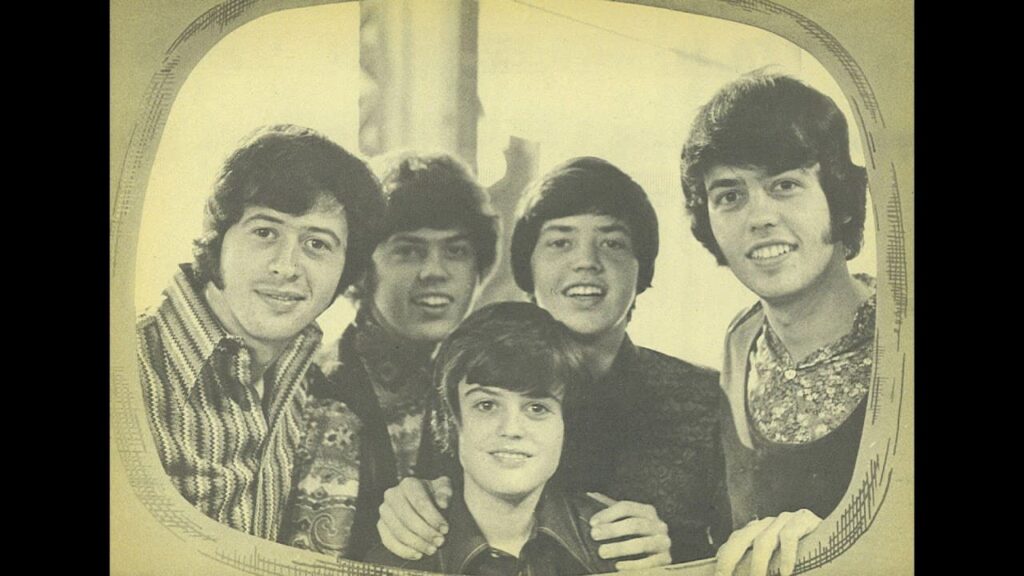
That Mischievous Grin: When The Osmonds Taught Us a Risqué Lesson
There’s a curious charm to looking back at the music that shaped our younger days, isn’t there? The familiar melodies, the forgotten lyrics, and sometimes, a song that suddenly feels a little… different with the wisdom of age. For those of us who remember the clean-cut, wholesome image of The Osmonds, particularly in their early pop-rock phase, “Find’em, Fool’em, and Forget ‘Em” stands out as a rather cheeky anomaly. Tucked away on their 1970 album, Osmonds, this track wasn’t a charting single, but it certainly holds a unique place in the group’s surprisingly diverse discography. The album itself, their first under MGM Records and featuring Donny taking on more lead vocal roles, was a success, reaching a respectable No. 14 on the Billboard Top LPs chart in February 1971 and eventually earning a Gold certification. But while hits like “One Bad Apple” and “Sweet and Innocent” were dominating the airwaves, “Find’em, Fool’em, and Forget ‘Em” offered a playful wink, a glimpse behind the curtain of their squeaky-clean façade.
The story behind this particular song is less about a dramatic life event and more about the burgeoning sound of The Osmonds as they transitioned from variety show darlings to genuine pop-rock contenders. Penned by the songwriting duo of Rick Hall and George Jackson, “Find’em, Fool’em, and Forget ‘Em” embodies a Muscle Shoals R&B influence that was quite prevalent in their early MGM recordings. Mike Curb, who signed the group to MGM, saw in The Osmonds a wholesome alternative to the more rebellious rock acts of the late 60s, yet he also understood the need for them to tap into a more contemporary sound. Recording at the legendary Muscle Shoals Sound Studio with producer Rick Hall meant infusing their music with that undeniable Southern soul grit. This particular track, with its slightly mischievous title and swaggering rhythm, feels like a deliberate, if subtle, departure from their family-friendly image, hinting at a more worldly perspective than fans might have expected.
The meaning of “Find’em, Fool’em, and Forget ‘Em” is exactly what it sounds like – a playful, perhaps even cynical, take on the art of casual romance. It’s about a character who approaches relationships with a detached, almost transactional mindset: seeking out new interests, charming them, and then moving on without a second thought. While this theme might seem a little bold for The Osmonds, it’s delivered with such a youthful exuberance and a catchy, almost danceable groove that it comes across more as youthful bravado than genuine malice. It’s a far cry from the heartfelt ballads and innocent pop anthems they became known for. For older listeners, it might even bring a chuckle, recalling a time when certain phrases and attitudes were simply part of the cultural landscape, without the deeper analysis we often apply today. It was a simpler time, when a catchy phrase could be taken at face value, even if its implications were a little risqué for a group of brothers often presented as paragons of virtue.
Hearing Merrill Osmond‘s lead vocal on this track, there’s a certain swagger in his delivery, a departure from the more earnest tones often heard from the group. The harmonies, a hallmark of The Osmonds‘ sound, are still present, but they’re infused with a grittier, more confident edge. It’s a testament to their versatility as musicians that they could navigate such disparate lyrical themes, from heartfelt sentiments to this more audacious declaration, all while maintaining their signature sound. The song offers a fascinating snapshot of a band finding their footing in the tumultuous landscape of early 70s pop, experimenting with different sounds and lyrical content to broaden their appeal. “Find’em, Fool’em, and Forget ‘Em” might not have been a chart-topper, but it’s a memorable deep cut for those who truly explored the Osmonds‘ albums, a playful reminder that even the most wholesome acts can have a touch of rebellion bubbling beneath the surface. It evokes a time of transition, not just for the group, but for the music industry itself, as artists dared to explore more complex themes, even when packaged in a seemingly innocent pop song.